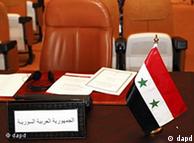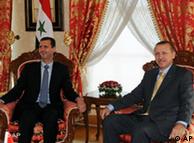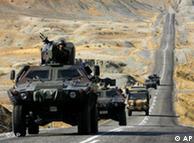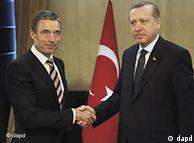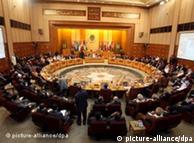Mega Loot & Corruption of Ambanis Since 1999
From the very beginning Dhirubhai Ambani and his sons corrupted and manipulated Indian government is explained in ‘The Polyester Prince: The Rise of Dhirubhai Ambani’ by Hamish McDonald and its sequels ‘Mahabharata in Polyester: The Making of the World's Richest Brothers and Their Feud’ and ‘Ambani & Sons’ from 1999 onwards brothers turned in to Multi Head Monster – last year Makesh & Anil Ambani were worth $45b and $42b Consolidating Equity Holdings to over 50% and equity of Indian small shareholders who filled the stadiums reduced to under 10% in RIL companies and Staff costs are not even 2%, but unlike pre 1999 when units performed at near full capacity, Companies are performing poorly or are Hoarding on Licenses, Resources and Real Estate.
CAG, TRAI, DGH & Electricity, Mining Regulators were corrupted. Mukesh Ambanis 4G acquisition is not yet under CAG CBI scanner.
$150b invested or Committed by India In Last 12 Yrs on
Ambani Companies yield little benefit.
When PSUs were Vertically Split & Only Allowed Horizontal Expansion – Ambanis Were Allowed Unlimited Unrestricted
Vertical & Horizontal Expansions.
RIL Refineries are mainly export oriented contributing little to India, Telecom Companies is under utilized, high cost services are operated, Oil & Gas in spite of 10 times higher capitalization than Petrobras barely contributes 5% of Oil & Gas needs in 12 years. Reliance Wellness or Reliance Retail stores sell most goods at MSP like other shops are mainly Real Estate Investments. Out of 35,000 MW power projects just 600MW has been commissioned by Reliance Power in ten years, out of 95 million tones of Coal Mining projected production there is no production yet from mining leases. 34,000 hectares of SEZ had failed to take off – mainly hoarding program to develop real estate. RIL was caught Re-routing of International Telephone calls as locals, Rigged Electricity Meters programmed to run fast in Delhi. Awarded EPC contracts to China for Power Plants, Gas Pipelines than Indian companies but are still much behind schedule. Consumers are least satisfied with Reliance Electricity Distribution & Telecom Companies.
Blitz observed: If the allegations against Dhirubhai Ambani and Reliance are proved, whether in the matter of evasion or in the alleged fraud of letters of credit opened with two foreign and three Indian banks for the import of PTA, then the conclusion becomes inescapable that, since 1969, a single industrialist had been literally dictating the government’s textile and import policies and maneuvering import rules to ‘kill’ his rivals and maintain his lead in the market ... The challenge to State Power lies in the accumulated wealth and economic clout in the hands of an individual who is neither an elected representative nor accountable to the people, who could rnanipulate Cabinet ministers as wed as party chiefs. Economic power goes hand in hand with its political counterpart, resulting in manipulating politicians and ministers right to the top of the top. AN this and more has put a new regime seeking to cleanse the Augean stables of the corporate sector in an extremely vulnerable position for its daring to challenge one of the biggest industrial empires with a Rs 27 crore show-cause notice. One can only wish Finance Minister V P Singh good luck with the danda [stick] now that the carrot has been spurned - from Polyester Prince.
1999 onwards Reliance rapidly expanded in to Refineries, Oil & Gas, Power, Telecom, SEZs, Retail, Infrastructure, Insurance, Capital, Healthcare, Entertainment in addition to Textiles, Petrochemicals, etc.
Reliance consolidated promoters equity, acquired licenses, Hoarded on to land, mining leases, Oil & Gas blocks and invested in foreign countries.
Oil & Gas - $500b Production Loss
1. RIL Operates 29 Blocks in India and 13 Overseas –Brazil licensed a 13,000 sq.mt block to 13 private companies for off shore exploration RIL acquired 25 blocks by 2001 when it had no off shore experience by engaging hiring NIKO, HEPI and HARDY for the purpose of Acquiring & Hoarding Oil & Gas blocks.
Though it made World’s biggest discovery of 2001 that RIL claimed was 40 times larger than Bombay High of ONGC but still it made no efforts to developed it and instead invested in Two Refineries that were executed speedily than VITAL Offshore 25 Blocks in 2001 to 29 blocks now.
2. GSPC too made Biggest Discovery in 2005 like in RIL case in very first well – but didn’t invest in developing the Oil & Gas at Deendyal Block acquired in NEPL III in 2001 – Gujarat backed down to let RIL monopolize the Oil & Gas operations. This discovery within 20-30 kilometers adjacent to KG D6 could have been directly connected to onshore separation & dehydration process of CNG for pumping it to destinations.
Both RIL & GSPC without drilling rigs commenced exploration two to four years after acquiring blocks in 1999 and 2001 NEPL bids.
RIL awarded Turn Key contract to develop KG D6 to Bechtel only in 2006, five years after discovery and seven years after NEPL-I that was commissioned in April2009.
Instead of 200 MSCMD of natural gas and plus some million tones of Crude Oil India get just 41 MSCMD of gas as per latest quarterly report and little crude oil.
India could have been self sufficient in Oil & Gas by 2005 and saved $500b worth petroleum imports.
3. When GAIL out to have laid Common Coastal Gas Pipeline from 1999 onwards, for all the licenses RIL corrupted DGH in to not considering CCGP and let RIL have its own Gas Pipeline that was built by Chinese from 2007, (six years after discovery and 8 years after NEPL I) to be ready by 2009 – this too discouraged other Oil & Gas operators from investing in Oil & Gas blocks.
4. When Brazil operated around 20 Offshore Drilling rigs in a Block leased to 13 companies RIL operated just one Drilling Rig for a while recently and hired just three rigs for 29 blocks December2011 onwards – and these too are Most Expensive over $0.510m per day rent when ONGC hired 7-9 rigs of various sizes at $0.140m average cost. (Copy Attached)
5. RIL had claimed to have discovered 40 times more gas at KG D6 than ONGC and it shall double Natural Gas production, would supply gas for a Century and shall be operational in 30 months from October31, 2002 but commenced production after 77 months from 2002 or 113 months after NEPL-I. Since RIL was allocated KG D6 in 1999 and till October31, 2002 it had developed just Three Wells but your government allocated 25 Blocs to RIL in NEPL I. II and III.
Four Telecom Companies – High Cost Services,
Low Utilization, Poor Service
1.23m Land Lines, 135m Wireless, 2.1m Internet Subscribers
5. Ambanis operated two Telecom Companies in 2001-02 itself as per AR Page 44 i.e. Reliance Telecom and Reliance Infocomm, licensed to operate 2G CDMA, GSM, Land Lines, WLL, Internet, Broadband, Optic Fibre, IPTV, VOIP, DTH, Cable TV etc. but it preferred Most Expensive Mobile Phone based services that relied on 97% foreign hardaware. (Secretary Telecom pointed out our hardware content in mobile phones is just 3% while releasing report on Mobile Handsets.) Ambanis, through backdoor acquired SWAN Telecom 2008 and Infotel Broad Band 2010 for 3G and 4G services.
Most of the Optic Fibre network was laid in Metros in 2002 itself or Metros could have World Class broad bank services for 10 years.
‘During the year, RIL acquired a 95% stake in Infotel Broadband Services Limited, which emerged as a successful bidder in all the 22 circles of the auction for Broadband Wireless Access (BWA) spectrum conducted
by the Department of Telecommunication, Government of India. RIL has invested Rs. 4,201.64 crore by way of subscription to equity capital issued by Infotel Broadband.’ RIL AR 2010-11 Page 19.
RIL sees the broadband opportunity as a new frontier of knowledge economy in
which it can take a leadership position and provide Indiawith an opportunity to be in the forefront among the countries providing world-class 4G network and services. A single 20 MHz TDD spectrum when used with LTE (Long Term Evolution) has the potential of providing greater capacity when compared to existing communication infrastructure in the country.
7. CAG Manipulated 2G Loss Figures – is illustrated by two important statements – 4G services across 22 circles for Rs.4500 crores as license fee has greater capacity than prevailing Communications Infrastructure.
8. CAG maliciously with political motive implicated PM, Home Minister and Finance Minister in recent letters & communications also.
Reliance Added Just 600MW of 35,000MW in 10Yrs
9. RIL tookover BSES (Reliance Power) in 2001 in latest AR2010-11 in a para admits it commissioned just 600MW out of 35,000MW and mining leases with 95 million tones capacity are not producing any coal. “The Company is in the business of setting up and operating power projects and in the development of coal mines associated with such projects. The Company has identified a large portfolio of power projects of more than 35,000 MW and is also developing coal mines with a potential to produce over 95 million tonnes of coal per annum (MTPA). Of the power projects which the Company is developing 600 MW are already operational while the balance capacities are under various stages of development.”
BSES Rs.3000 Cr Loot in 2000-01
10. BSES in 2000-01 purchased electricity worth Rs.1005 crores and I found out of MERC case at Rs.1.77 per unit (NTPC generation cost then was 0.93p per unit) or 568 crore units, BSES own generation at Dahanu was 362 crore units “so availability was 930 crore units but BSES declared sales of 541 crore units. On sale of 541 crore units input energy required to cover 12% T&D losses, 3% HT losses, auxiliary losses of 6% was around 630 crore units “so clearly BSES UNDER DECLARED 300 crore units sales of electricity that delivered to Industries would be worth Rs.1,800 crores.
This is over and above Profits Declared by BSES that year was Rs.321 crores, so gross LOOT was Rs.2121 crores. Considering NTPC would have supplied 541 crore units at under Rs.800 crores, add Staff cost of Rs.122 crores, Dividend of Rs.60 crores and Rs.112 crores for O&M adds up to Rs.1100 crores but Energy Sales was Rs.2158 crores.
All this adds up to Rs.3000 crores annual loot.
[Source of this Loot was 50% increase in power tariff in Maharashtra State in 1996 primarily for MSEB serving large state with over 30% T&D losses and Agricultural load but BSES applied this tariff to its licensed area when T&D losses in BSES area of Mumbai were 12% and there was no farming load and from 1995 commissioned 500MW own power generation.]
Energy Imports to Exceed $400b by 2020 Doubling GHG
11. Private Companies have taken over Coal Mining leases in India & Foreign countries but not working onIndia with potential to produce 300 million tons annual potential leading to critical shortages. Mining cost inIndia is $10 to $20 per tone, imported Coal though superior cost 10 times more – by 2014 India is to import 180 million tones of coal.
Energy Imports Coal, Oil & Gas by 2020 may exceed $400b annually. India required just about $400b to install 200,000MW of Hydro Power projects, having 500 BCM storages on Indian Rivers providing flood protection and irrigation supplies doubling food production and also 60,000MW Nuclear Power.
34,000 Hectare SEZ Loot Program
12. RIL spear headed SEZ loot prog acquiring prime land in Mumbai and Delhi suburbs – 34,000 Hectares or 85,000 acres at Rs.50 crore per acre developed real estate is Rs. 42,50,000 crore business value – this is Rs.20,00,000 crore loot.
Reliance Power also grabbed 2500 acres of land for Gas Power Project for 3500MW to 10,000 MW that required just about 350 acres of land.
Call Re-Routing & Rigged Electricity Meters
13. Ambani Group Company used Nokia Technology explained in US Patent 7120441 to cheat PSU Telecoms re-routing ISD calls as locals and abused GE technology described in USP 6459258 by installing Programmable Most Expensive Meters purchased on consumers account. GE patent describes technology of installing two programs in computerized meters – one operating and other for reference – whenever Meters developed problems operating program was replaced by reference program but Reliance companies installed two or more programs one accurate and others fast.








